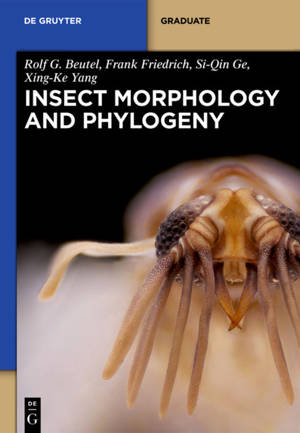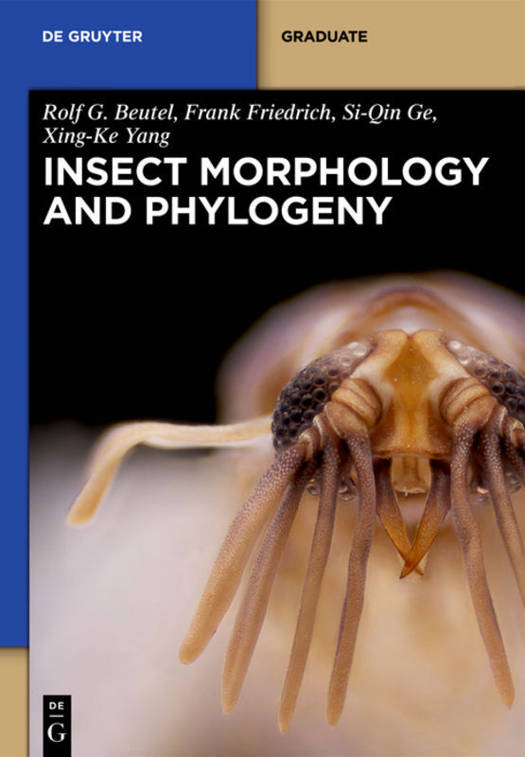
- Retrait gratuit dans votre magasin Club
- 7.000.000 titres dans notre catalogue
- Payer en toute sécurité
- Toujours un magasin près de chez vous
- Retrait gratuit dans votre magasin Club
- 7.000.0000 titres dans notre catalogue
- Payer en toute sécurité
- Toujours un magasin près de chez vous
Insect Morphology and Phylogeny
A Textbook for Students of Entomology
Rolf G Beutel, Frank Friedrich, Xing-Ke Yang, Si-Qin Ge
91,45 €
+ 182 points
Description
In the last decades a remarkable renaissance has materialized in insect morphology, mainly triggered by the development of new cutting-edge technologies. This is an exciting time for biological synthesis where the mysteries and data derived from genomes can be combined with centuries of data from morphology and development. And, now, more than ever, detailed knowledge of morphology is essential to understanding the evolution of all groups of organisms. In this "age of phylogenomics" researchers rely on morphological data to support molecular findings, test complex evolutionary scenarios, and for placing fossil taxa. This textbook provides an in-depth treatment of the structures and the phylogeny of the megadiverse Hexapoda. The first part presents an up-to-date overview of general insect morphology with detailed drawings, scanning electron micrographs, and 3-D reconstructions. Also included is a chapter covering innovative morphological techniques (e.g., µ-computer tomography, 3-D modeling), brief treatments of insect development and phylogenetic methods, and a comprehensive morphological glossary. The second part is of a modern synthesis of insect systematics that includes taxon-specific morphological information for all Orders. The work is an invaluable reference for students and researchers working in all facets of biology and is a must for evolutionary biologists. A detailed understanding of morphology is essential in unraveling phylogenetic relationships and developing complex evolutionary scenarios. Increasingly researchers in phylogenomics are re/turning to morphological data to support their findings, while the development of new cutting-edge technologies has further increased interest in this growing field. This definitive handbook provides an in-depth treatment of insect morphology. The first part presents an up-to-date overview of insect morphology with detailed drawings, brilliant scanning electron micrographs and 3-D reconstructions as interactive PDFs. This is complemented by a chapter on innovative morphological techniques (e.g., µ-computer tomography, 3-D modeling) and a comprehensive morphological glossary. The second part treats the state of the art in insect systematics and includes taxon-specific morphological information for all orders. Systematics are treated formally, with for example the arguments for relationships ("apomorphies") always listed explicitly. The work is a useful reference for students and researchers working in different fields of biology and a must for those dealing with insects from an evolutionary perspective.
Spécifications
Parties prenantes
- Auteur(s) :
- Editeur:
Contenu
- Nombre de pages :
- 531
- Langue:
- Anglais
- Collection :
Caractéristiques
- EAN:
- 9783110262636
- Date de parution :
- 13-12-13
- Format:
- Livre relié
- Format numérique:
- Genaaid
- Dimensions :
- 170 mm x 239 mm
- Poids :
- 997 g

Les avis
Nous publions uniquement les avis qui respectent les conditions requises. Consultez nos conditions pour les avis.






